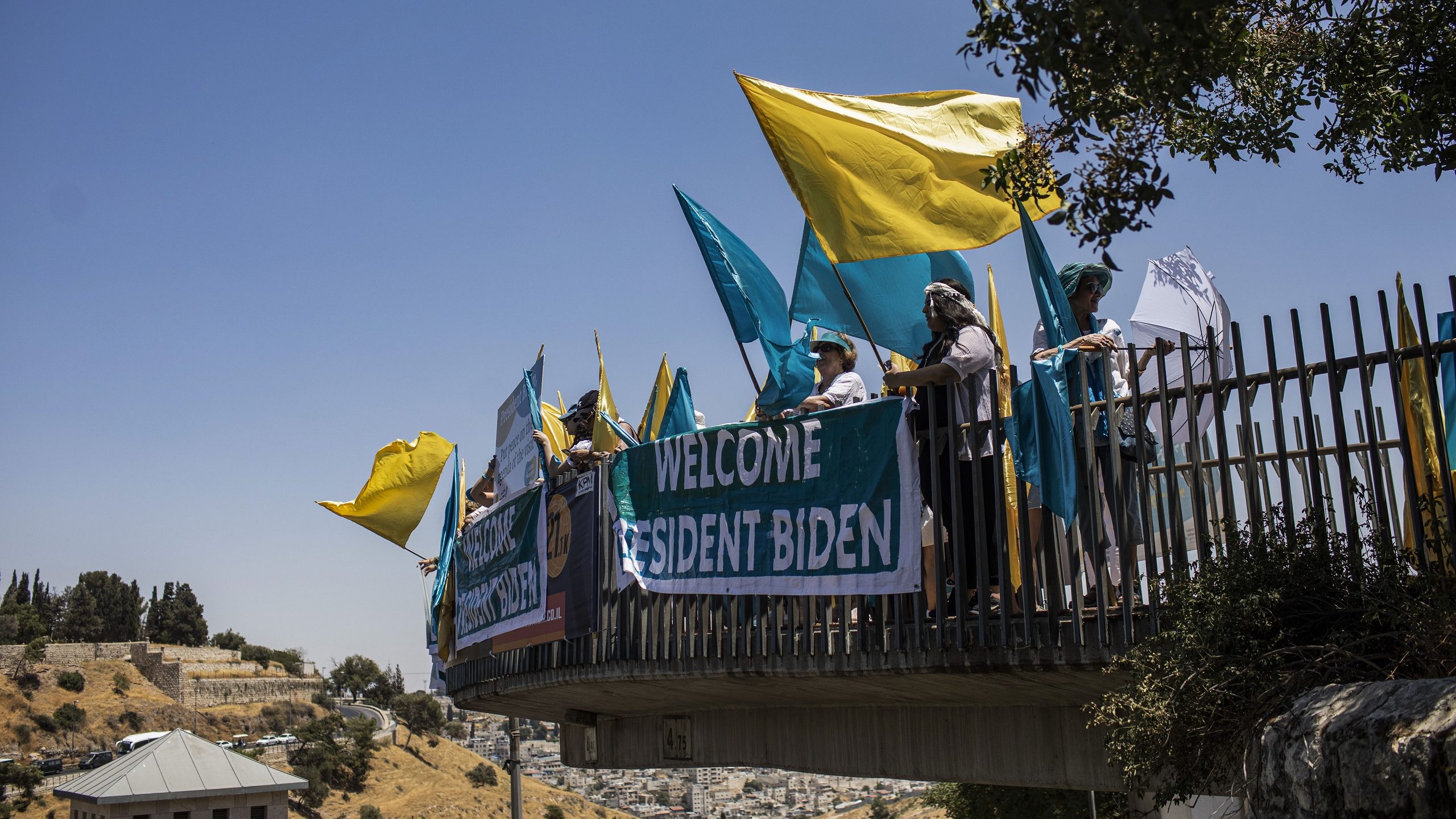President Biden and the Beast of the Middle East
US President Joe Biden visited the Middle East last week, aiming to build a security pact as he tried to convince more Arab states to forge what was once an unlikely alliance with Israel in the face of what they deemed a common threat, Iran.
The view of Israel and members of the Gulf Cooperation Council is that Iran’s nuclear program and its ballistic missiles are a threat to their national security; they are demanding that Washington sign a tough agreement with Tehran to contain its growing influence in the Middle East and curtail its nuclear capability.
Peace and security are what the Middle East needs right now. President Biden needs to prevent the looming war and work to de-escalate the many active conflicts raging in the region. If not, the US and its allies need to be prepared for another costly regional war that former President Donald Trump, along with his friends and allies in the region, set the wheels in motion for.
Several factors are contributing to the rapidly increased tension, threatening to plunge the area into what possibly could be the mother of all Middle East wars: the US withdrawal from the Joint Comprehensive Plan of Action (JCPOA) in 2018, the killing of Quds Force commander Gen. Qasem Soleimani, and the covert, low-grade war between Israel and Iran. Both countries have been engaged in several attacks on each other, including targeting ships in the Gulf, Red Sea, and elsewhere. The historic signing of the Abraham Accords was part of an attempt by the US, Israel, and some of their Sunni allies (UAE and Bahrain, followed by Sudan and Morocco) to build an alliance to either attack or contain Iran’s growing influence in the region.
Give the gift of hope
We practice what we preach:
accurate, fearless journalism. But we can't do it alone.
- On the ground in Gaza, Syria, Israel, Egypt, Pakistan, and more
- Our program trained more than 100 journalists
- Calling out fake news and reporting real facts
- On the ground in Gaza, Syria, Israel, Egypt, Pakistan, and more
- Our program trained more than 100 journalists
- Calling out fake news and reporting real facts
Join us.
Support The Media Line. Save democracy.
The tools and resources for peace already exist: restoring the JCPOA and redefining the Abraham Accords between the Arab states and Israel to be for peace, not war. Washington should work to support the current negotiation between Saudi Arabia and Iran to end the Sunni-Shia dispute in the area dominated by Riyadh and Tehran and push for an end to the bloody conflicts in Libya, Syria, and Yemen. President Biden should use US power in the Middle East to ensure that any proposed security alliance in the region is a tool for peace, not war. Such a security alliance will have an impact on the Russo-Ukrainian War by shifting Middle Eastern alliances away from Moscow and helping isolate Russia in order to stop its war against Kyiv.
To restore the JCPOA, Iran only wants the sanctions lifted. Tehran had shown a full commitment to the agreement, and the US must provide assurances to protect the agreement. One way to do that is by turning to Congress for a vote. The damage former President Trump, former Israeli Prime Minister Binyamin Netanyahu, and their allies in the Middle East caused to regional security has served the interests of America’s enemies. Trump-Netanyahu peace and security measures were based on personal interests, which is no wonder; coming from two leaders who represent the extreme right and support many dictatorships around the world.
Their efforts to establish a security alliance in the Middle East excluding Iran will only help escalate the conflicts and arms race in the region. President Biden should try to form a kind of alliance that brings everyone to the table, including Iran. All parties in the region are ready for such a step due to national security needs, economic aspirations, fears of internal instability, and terrorism. The US administration should work to end the proxy wars and nonstate actors’ involvement in regional instability by having all states invited to the table to negotiate a more stable region, It should be the highest priority for the US president to reinstitute and protect “American interests and values” in the region and to work with the international community represented by the UN to stop militarizing the region and support a weapons-of-mass-destruction-free zone. Rebuilding trust with the region, including Iran, is a mandate to have a more stable and secure region.
Reviving Iran nuclear deal would also help de-escalate the arms race and the tensions between the states of the region to help achieve a state of no conflict. The Abraham Accords could serve as an example to promote regional stability within the signatory states. Palestinian officials say the US administration and Israel want to maintain the status quo, which is now focused only on managing the conflict and not resolving it. This, however, means that this conflict has no impact on the political dynamics in the region. The Palestinians will need President Biden to recommit the US to a two-state solution and push for more economic steps to improve the daily lives of Palestinians. But he will not do anything other than provide some economic incentives for the PA to assure there is no security vacuum in the West Bank. On the Gaza front, the US already has some talks with Hamas through a third party to ensure the western borders of Israel are safe and Hamas has some financial resources through Qatar. If President Biden uses this chance, the Abraham Accords should establish a new era of security alliance in the region that would sideline the US rivals China and Russia, reduce the arms race, and decrease the impact of the nonstate actors used by the regional states to destabilize the region as a form of revenge or defensive measures.
The Eastern-Western cultural conflict represented by Russia and China on the one hand and the US and Europe on the other is not going anywhere soon and will continue to increase the arms race. However, the US still dominates the global market, at least culturally, which President Biden also focuses on under the notion of American values. The current global economy is led by advanced technology and arms and will continue to be in the future. President Biden’s offer of supporting the Middle East with new technology and arms should be conditioned on peace and security measures. Technology for peace would create more stability and economic opportunities for the states of the region that are turning to China and Russia for armament – especially given the combined dangers of artificial intelligence, missile technology, and nuclear power, along with cybersecurity threats and wars.
By enhancing peace and security in the Middle East, starting with reviving the JCPOA, President Biden will have a legacy that no former president ever had in this boiling region. He should put more effort into applying the JCPOA project to the Middle East and encourage the regional states to join the Middle East WMD-free zone. However, if the president fails to convince Israel to stop targeting Iran, the latter will retaliate through its proxy wars in Yemen and Syria, target Israeli targets around the world, and disrupt oil delivery, which will not be helpful for global food security or development.
The reality is that the Israeli-Sunni security alliance against Iran does not mean that the Sunni states want a war with Iran. Such a war would be disastrous for these states’ interests and would increase their domestic, internal opposition. If President Biden would push the Sunni states and Iran (using the JCPOA carrot and security assurances) and bring Israel to the table as part of a regional security forum to discuss their concerns and aspirations, he could transform the winds of war into winds of peace.




